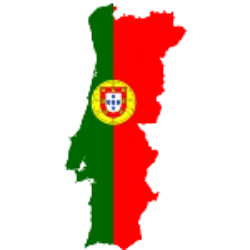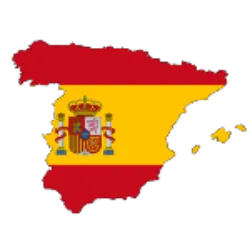Little-Known Facts About Portugal
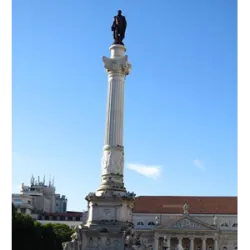
The Rossio Statue
Although everyone believes the statue represents D. Pedro IV, there is a myth that it was repurposed from another historical figure.
To prevent anyone from noticing, it was placed at the top of the column, out of public view.
This shows how urban legends can arise from seemingly small historical details.
Lisbon
Some buildings in the city date back to before 1143, the official founding year of Portugal.
They survived earthquakes, invasions, and changes of government over centuries.
This reveals the incredible resilience and historical richness of the Portuguese capital.
There Are Secret Tunnels Under Lisbon
Underground passages connect old convents, palaces, and military areas.
Many of these routes are closed or have never been fully mapped.
They served both for escape and logistics, showing a mysterious side of the city.
Portugal Once Banned Carnival
During certain conservative periods, Carnival was seen as a threat to public order.
The festivities were officially banned in some regions.
This shows how even popular traditions can become targets of political control.
The “Gold of Brazil”
Much of Brazil’s gold was sent to England, and only a fraction remained in Portugal, showing the complexity of the colonial economy.
Secret tunnels beneath Lisbon

Lisbon is not just built above ground. Over more than two thousand years, different civilizations have constructed underground structures that remain hidden to this day.
Origin of the tunnels
Romans: drainage galleries, aqueducts, and sewers.
Islamic period: passages used for escape and supply.
Middle Ages: corridors under convents, churches, and palaces.
Purpose
Escape routes during sieges and invasions
Discreet transport of people, weapons, and supplies
Secure communication between strategic buildings
Shelter during conflicts
Impact of the 1755 earthquake
Many tunnels collapsed or were buried
Pombaline reconstruction built the city over older structures
Original maps were lost, preventing complete mapping
Documented tunnels
Galleries of the Aqueduto das Águas Livres
Roman cryptoporticos in Baixa
Subterranean passages under former convents
The mysterious side
Reports of connections between the Castle and the Tagus River
Tunnels between palaces and military areas
Structures not yet officially cataloged
Why almost no one talks about it
Urban safety risks
Archaeological complexity
Simplified tourist narrative
Test yourself with one of these challenges 👇
Discover some interesting facts about Portugal
The Rossio Statue
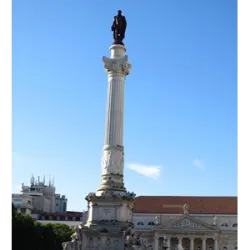
In the center of Lisbon, in Rossio Square, stands a column crowned by a statue attributed to Dom Pedro IV. At first glance, it appears to be a clear symbol of Portuguese liberalism. However, the story behind the sculpture is more curious than it seems.
Origin of the statue
Inaugurated in 1874
Officially dedicated to Dom Pedro IV
Cast in bronze and placed atop a tall column
The urban legend
There is a persistent myth that the statue does not represent Dom Pedro IV
It is believed the sculpture was reused from another historical figure
To avoid questioning, it was placed far from the public’s direct view
Why the doubt exists
Facial features do not match known portraits of the king
The crown and posture do not follow Portuguese iconographic standards
There is a lack of clear documentation about the original commission
Symbolism of the column
The pedestal represents the values of liberalism
Allegorical figures symbolize Justice, Wisdom, Strength, and Moderation
What this reveals
How urban legends arise from historical gaps
How monuments can be reinterpreted over time
Chestnut Tradition

Magusto is a festival between October and November, associated with dates such as Saint Simon's Day, All Saints' Day and Saint Martin's Day. It is celebrated around bonfires, roasting chestnuts with jeropiga, açaí or new wine. The brave jump over the bonfire, and "filling" it with ashes is part of the tradition. Despite the rain in autumn, "Saint Martin's summer" brings sunshine. The legend of Saint Martin, related to a rainy day, explains this phenomenon. A specific tradition, the "Magusto da Velha", takes place in Aldeia de Viçosa on December 26, honoring a rich old woman with the throwing of chestnuts from the bell tower and prayers. The event in Barqueiros, Mesão Frio, connects magusto to ancient rituals in honor of the dead.
A Monastic Secret that Enchanted the World

The history of Pastel de Belém dates back to the beginning of the 19th century and is linked to the monks of the Jerônimos Monastery, in Belém, Lisbon. They would have created the sweet to use surplus gems from the hosts. The monks kept the secret of the recipe, but after liberal revolutions in 1920, they had to leave the monastery. A sugar merchant, Domingos Rafael Alves, discovered the secret and began selling the sweets as "Pastéis de Belém". The region attracted tourists, strengthening the sweet's fame. In the 20th century, Pastel de Belém became a tourist and gastronomic icon in Portugal, with visitors from all over the world trying this delicacy. The local proverb says: "a bride who eats pastry never takes off her ring", and it is common to see newlywed couples enjoying this sweet treat on their wedding day as part of the tradition.
Saint Elizabeth of Portugal 's Day is celebrated on July 4th
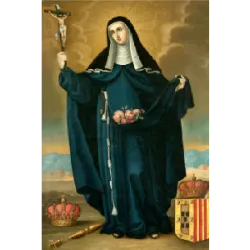
Saint Elizabeth of Portugal 's Day is celebrated on July 4th . Saint Elizabeth, also known as Elizabeth of Aragon, was a queen known for her charity and generosity towards those less fortunate. She was born in 1271 and died in 1336. Saint Elizabeth is remembered for her charitable works, including creating hospitals and distributing food to the poor. She is also known for her deep commitment to the Christian faith and her prayer life. Her devotion to helping those in need made her a revered and respected figure in Portugal and beyond.
celebrate in July 4
April 25 is the day of the Carnation Revolution

April 25 is the day of the Carnation Revolution, a historic event in Portugal that took place on April 25, 1974, which overthrew the dictatorial regime of the Estado Novo, in power since 1933. Led by the Armed Forces Movement (MFA), composed mainly of captains who had participated in the Colonial War, the movement had massive popular support. The military action resulted in few civilian casualties and led to the appointment of the Junta de Salvação Nacional to govern the country. A period of social and political unrest known as PREC (Ongoing Revolutionary Process) followed. On April 25, 1976, a new democratic Constitution came into force, marking the end of the authoritarian regime and the beginning of a democratic period in Portugal. The military coup was triggered by dissatisfaction with the colonial war, internal divisions within the regime and political repression.
celebrate in April 25
Test yourself with one of these challenges 👇
HOME

